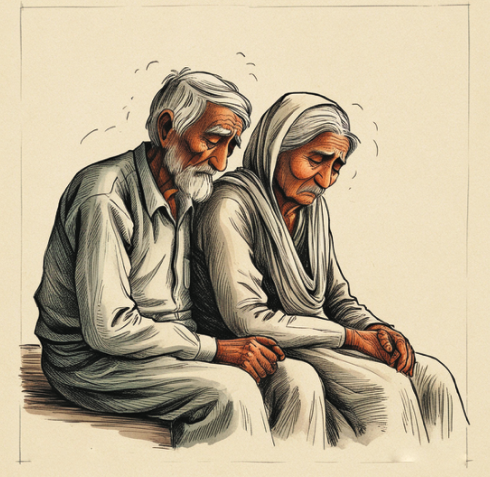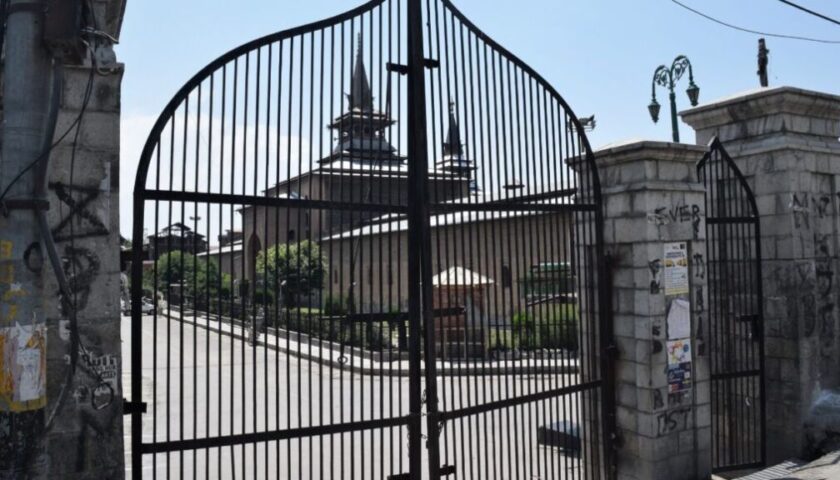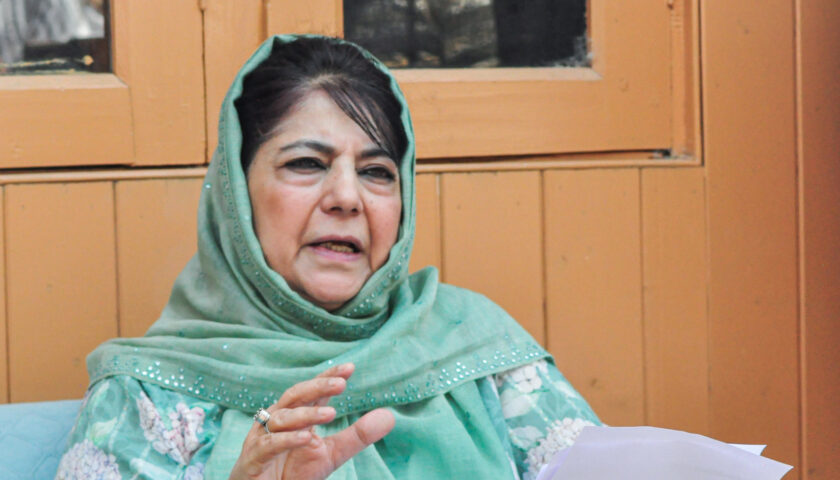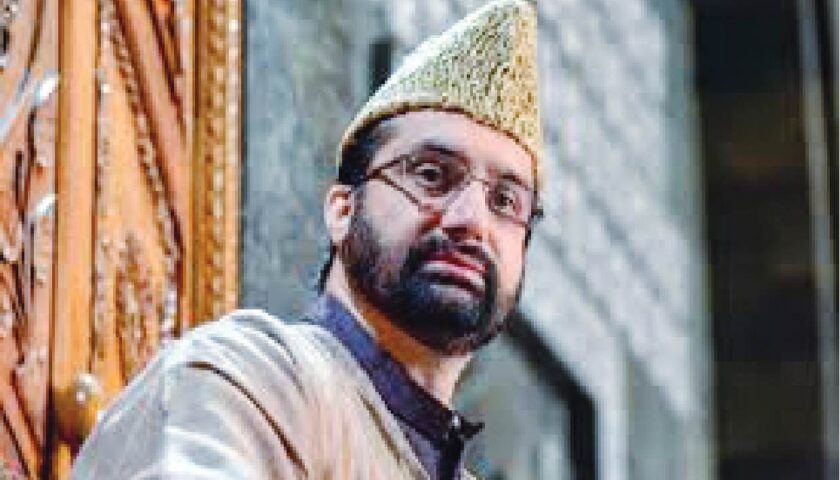A Valley Where Love Once Lived, But Now Many Elders Live Alone
By: Javid Amin | 18 September 2025
A Crisis Hidden in Plain Sight
On a chilly May evening in Ganderbal, 78-year-old Ghulam Nabi sat quietly on the wooden bench of a government-run old-age home. His hands trembled, not from the cold, but from the weight of betrayal. Just months earlier, he had been living in his ancestral home, surrounded by orchards and memories. Today, his three sons—educated, employed, and settled—had barred him from entering the very house he built.
“They told me I was a burden,” he whispered, eyes moist. “But I only wanted a corner to die in peace.”
Stories like Nabi’s are no longer rare in Kashmir. Across the Valley, from Srinagar to Anantnag, from Budgam to Baramulla, parents are increasingly being abandoned by their children—once considered the pillars of filial duty in Kashmiri society. The numbers are difficult to track, but social workers, lawyers, and local elders all confirm the same disturbing pattern: a silent epidemic of neglect and eviction.
This isn’t just a social shift. It’s a collapse of conscience in a society that once saw caring for parents as sacred, even divine. The Valley, long known for its joint family culture and deep reverence for elders, is witnessing fractures that go beyond economics—they strike at the heart of identity.
From Sacred Bonds to Legal Battles
Traditionally, Kashmiri households revolved around elders. They were the storytellers, the moral anchors, the ones who blessed Eid gatherings with warmth and wisdom. A Kashmiri proverb goes: “Moul chhu doulat, beyi kyah chu zolmat” (Parents are wealth, everything else is darkness).
But today, that wealth is being discarded. In recent years:
-
Parents have been tricked into transferring property to sons who then evict them.
-
Legal restraining orders have been filed against fathers by their own children.
-
Mothers have been denied access to kitchens, meals, and even their grandchildren.
In May 2025, the government inaugurated an old-age home in Pandach, Srinagar, meant to provide shelter to abandoned elders. But behind its new walls lie heartbreaking stories of legal betrayals, disinheritance, and emotional collapse.
The Decline of the Joint Family
The joint family system once defined Kashmiri life. Multi-generational households meant shared kitchens, shared responsibilities, and shared joys. The elders weren’t just tolerated; they were central.
That changed in the 1990s and 2000s, as urbanization, conflict, and migration reshaped lifestyles. Families moved from sprawling ancestral homes into two-bedroom flats in Srinagar or rented apartments abroad. With less space came less patience.
-
Urban housing constraints made large families impractical.
-
Economic migration separated children from their parents.
-
Exposure to nuclear family models through media and education eroded the joint family ideal.
Where once Eid was celebrated with 30 relatives under one roof, today it is often confined to a single couple and their children. For elders, this transition has meant shrinking relevance—and in many cases, outright rejection.
Property, Power, and Betrayal
Perhaps the most bitter force behind the abandonment crisis is property. In Kashmir, land and homes are not just financial assets—they are tied to dignity, identity, and survival.
Cases abound where children convince parents to transfer property early, promising care in return, only to later abandon them. In some instances:
-
Fathers are locked out of their own orchards.
-
Mothers are denied entry into the homes their dowries once helped build.
-
Legal loopholes allow children to grab property while parents are left with nothing.
As one Srinagar-based lawyer observed:
“In the past, property was what bound families together. Today, it is tearing them apart.”
The disputes are often more ruthless than those with strangers, because the betrayal comes from one’s own blood.
The Role of Marital Conflicts
Hidden within many cases is another factor: marital tensions. The relationship between daughters-in-law and in-laws often determines whether parents are cared for or sidelined.
-
In some families, wives feel burdened by the responsibility of caring for in-laws.
-
Sons, torn between spouse and parents, choose peace at home over duty to elders.
-
Conflicts escalate, leading to demands for separation—and eventual abandonment.
This is not about blaming women; rather, it reflects a lack of mechanisms for mediation and balance. In the old joint family system, such tensions were absorbed by the collective. Today, with nuclear setups, the conflict often ends with the elder pushed out.
The Digital Divide & Erosion of Values
While property disputes and marital conflicts explain much, there is a broader cultural shift underway—fueled by smartphones, digital media, and global consumerism.
Today’s youth are shaped less by parental guidance and more by algorithms. Respect for elders, once drilled into children through oral storytelling, folklore, and faith, is being overshadowed by digital culture.
-
Social media glorifies independence and individual comfort.
-
Parental wisdom is dismissed as “outdated” compared to online influencers.
-
Empathy is dulled by hours spent on reels, games, and virtual validation.
As a teacher in Shopian remarked:
“We used to fear bullets. Now we fear boredom. Students scroll through violent reels in class while their parents sit ignored at home.”
The digital revolution, while connecting Kashmir to the world, is disconnecting it from its roots.
Weak Legal Protections
India has laws like the Maintenance and Welfare of Parents and Senior Citizens Act (2007), which makes it legally binding for children to provide for their parents. But in Kashmir, enforcement is weak.
-
Many elders are unaware of their rights.
-
Filing a case against one’s own children carries stigma.
-
Even when courts intervene, execution is slow.
This vacuum emboldens neglect. As one retired magistrate noted:
“Children know their parents will rarely drag them to court. That silence is their shield.”
Psychological Pressures
Economic stress, rising unemployment, and a growing aspiration gap also play their role.
-
Many young families argue they “cannot afford” the financial and emotional cost of elder care.
-
Migration and job pressures make parents seem like an obstacle.
-
Some children rationalize abandonment by saying parents are “better off in old-age homes.”
This cocktail of stress and guilt is making neglect not only easier—but increasingly normalized.
A Silent Epidemic
When seen together, these forces—urbanization, property disputes, marital tensions, digital distractions, weak laws, and economic stress—form a silent epidemic.
The tragedy is not loud. It does not explode in headlines like militancy or floods. It seeps quietly, in abandoned prayer mats, locked gates, and silent tears.
And unlike apples rotting in mandis, this crisis is invisible. The Valley’s economic losses may recover with new policies. But who will rebuild the moral fabric that once defined Kashmir?
The Way Forward: Restoring Conscience & Care
Reviving Community Conscience
-
Use mosques and shrines as anchors to remind youth of their duty.
-
Form mohalla-based elder watch groups.
-
Celebrate Kashmiri culture that once revered elders.
Strengthening Legal Safeguards
-
Fast-track tribunals for elder cases.
-
Link property transfers to mandatory care clauses.
-
Spread awareness of senior citizens’ rights.
Rethinking Care Beyond Old-Age Homes
-
Create day-care centers for elders.
-
Develop community-based adoption of vulnerable elders.
-
Train caregivers to support parents at home.
Bridging the Digital Divide
-
Teach elders digital literacy to stay connected.
-
Encourage family WhatsApp groups for daily check-ins.
-
Use social media to normalize caring for parents.
Reorienting Youth Values
-
Build mentorship programs pairing youth with elders.
-
Reform school curricula to include empathy and family values.
-
Give university credits for volunteer work with seniors.
Government Policy Interventions
-
Increase pensions and healthcare subsidies.
-
Launch helplines for neglected elders.
-
Design elder-friendly infrastructure in urban plans.
Editorial Reflection: A Test of Kashmir’s Soul
Kashmir has survived invasions, insurgencies, and natural disasters. But the abandonment of parents is a different kind of tragedy. It is not imposed from outside—it comes from within. It is not fought with bullets or protests—it is fought with conscience.
The Valley now faces a moral test. Will it allow its elders to fade away in loneliness, betrayed by the very children they raised? Or will it reclaim its tradition, where parents are not burdens but blessings?
As one retired principal put it:
“Our sons are choosing comfort over conscience. But if conscience dies, what comfort will remain?”
The time to act is now. Because when a society abandons its elders, it does not just lose people—it loses its soul.




